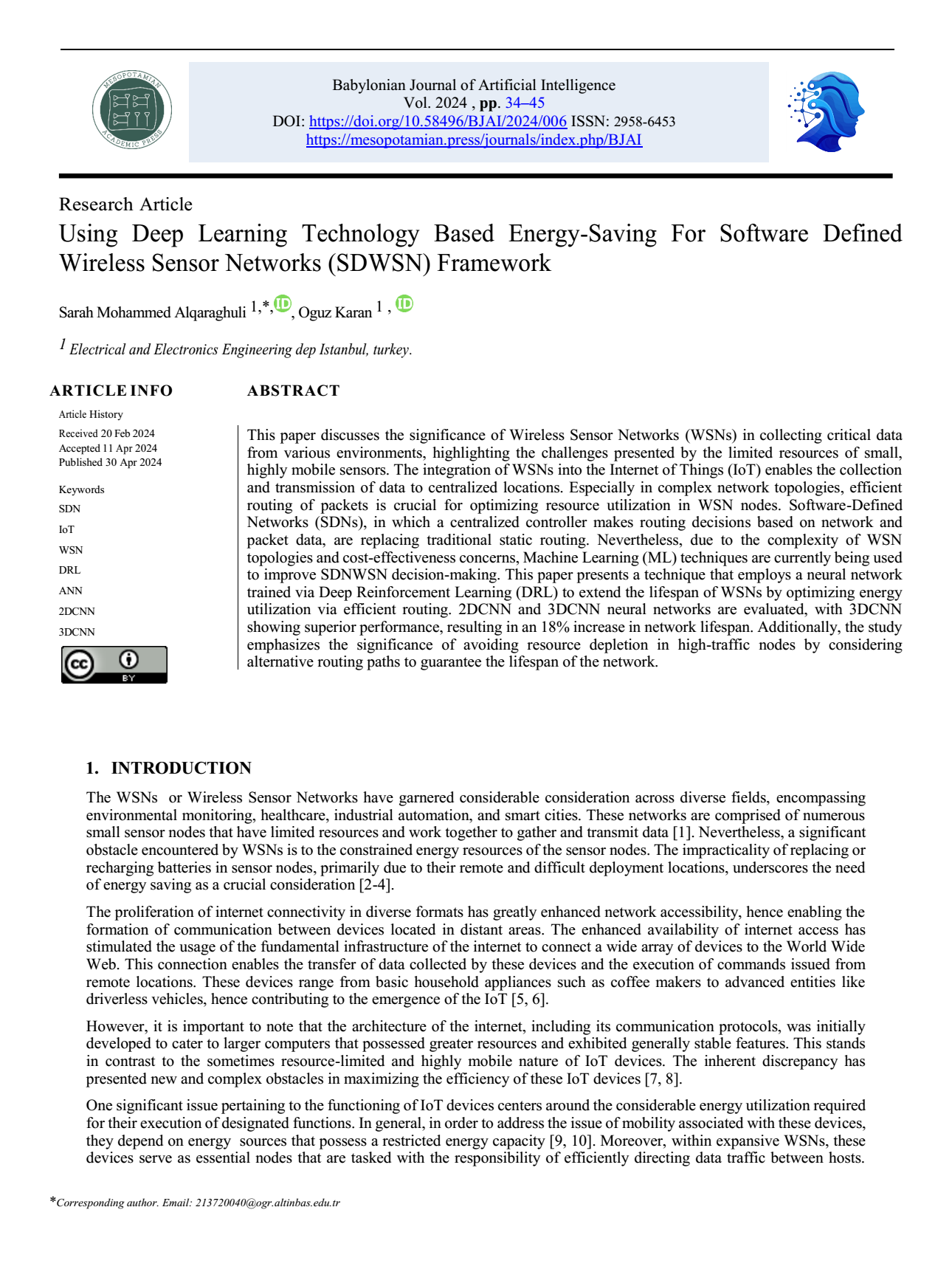Using Deep Learning Technology Based Energy-Saving For Software Defined Wireless Sensor Networks (SDWSN) Framework
Main Article Content
Abstract
This paper discusses the significance of Wireless Sensor Networks (WSNs) in collecting critical data from various environments, highlighting the challenges presented by the limited resources of small, highly mobile sensors. The integration of WSNs into the Internet of Things (IoT) enables the collection and transmission of data to centralized locations. Especially in complex network topologies, efficient routing of packets is crucial for optimizing resource utilization in WSN nodes. Software-Defined Networks (SDNs), in which a centralized controller makes routing decisions based on network and packet data, are replacing traditional static routing. Nevertheless, due to the complexity of WSN topologies and cost-effectiveness concerns, Machine Learning (ML) techniques are currently being used to improve SDNWSN decision-making. This paper presents a technique that employs a neural network trained via Deep Reinforcement Learning (DRL) to extend the lifespan of WSNs by optimizing energy utilization via efficient routing. 2DCNN and 3DCNN neural networks are evaluated, with 3DCNN showing superior performance, resulting in an 18% increase in network lifespan. Additionally, the study emphasizes the significance of avoiding resource depletion in high-traffic nodes by considering alternative routing paths to guarantee the lifespan of the network.
